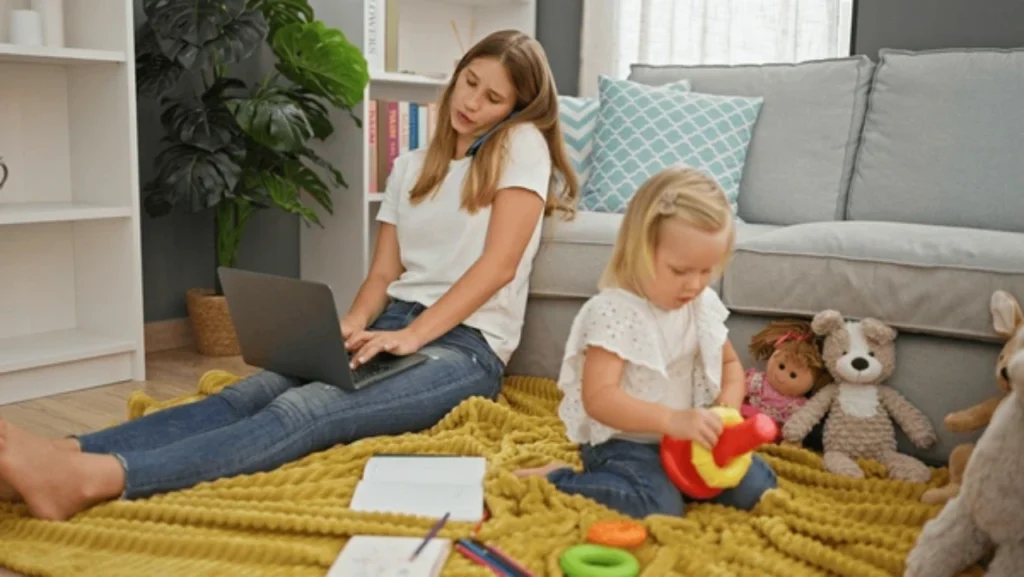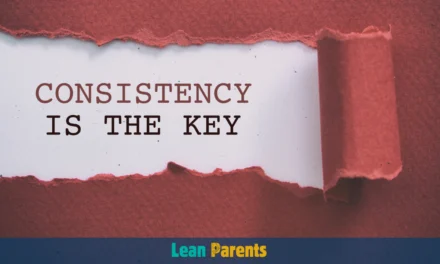Being a parent through separation and divorce is tough. It brings a lot of pain and challenges. But, I’ve seen how strong and resilient parents can be when they put their kids first1.
Coparenting after a split is hard, but it’s key for your kids’ future. When done right, it brings stability, security, and love. This helps kids deal with the tough times of family change23.
Key Takeaways
- Effective coparenting creates a stable environment for children after separation
- Putting aside personal differences to prioritize your children’s well-being is essential
- Maintaining open communication and consistency across households is crucial for children’s adjustment
- Seeking professional support can help navigate the emotional challenges of coparenting
- Coparenting requires ongoing effort, flexibility, and a shared commitment to your children’s best interests
Understanding the Basics of Coparenting After Separation
Successful coparenting means keeping personal feelings out of parenting. It’s about talking openly and focusing on your kids’ needs4. This approach helps your kids feel better mentally and emotionally, reducing stress and sadness4. But, remember, coparenting is a journey that takes time and flexibility5.
What Makes Successful Coparenting
Good coparenting is about respect, low conflict, and open talks. It’s about working together for your kids’ best4. Studies show it helps teens feel better about themselves and behave better4.
The Impact on Children’s Well-being
When parents fight a lot, kids can feel stressed and act out4. But, when parents work together, kids do much better mentally and emotionally4.
Setting Realistic Expectations
It’s normal for parents to not get along after a divorce4. Coparenting is a long-term commitment for kids’ happiness4. Even though 75% of kids do well when parents are close, 60% face challenges due to distance5.
About 40% of parents need to adjust their plans because of unexpected things5. And, around 50% make flexible plans as their kids grow5.
Learning about coparenting helps you manage your new family life. Building respect and equality is key to a positive family environment.
Creating a Strong Foundation for Your New Family Dynamic

Starting a new family dynamic after a separation is a big step. It’s key to build a strong foundation. This means having a good relationship with your ex, focusing on your kids’ happiness. Setting clear boundaries and respecting each other’s parenting styles are crucial. Working together to create a stable home for your kids is essential.
Studies show kids who stay close to both parents after a divorce do better emotionally and in school6. But, about 60-70% of kids struggle with the new family setup6. By focusing on your kids and making a good co-parenting plan, you can help them adjust better.
Good communication and setting realistic goals are key. About 30-40% of co-parenting couples struggle with talking and setting boundaries6. A detailed parenting plan and professional communication can help you work better with your ex.
Blending families can be tough. But, if you wait two years or more to remarry, your chances of success are higher7. Setting limits and understanding the needs of kids of different ages and genders can help create a loving home for your new family7.
Changing to a new family structure is hard, but with the right approach, you can do it. Getting help from professionals can make a big difference in over 70% of cases6. By focusing on communication, setting boundaries, and planning together, you can help your kids thrive in their new home.
Establishing Effective Communication Channels
Good communication is key to successful coparenting after a split. Using different ways to talk helps you stay in sync, set clear rules, and keep things professional with your ex8.
Using Technology for Better Coordination
Today’s tech has many tools for coparents to stay organized. Tools like shared calendars and apps like OurFamilyWizard or Cozi help a lot. They keep both homes up to date on the kids’ lives910.
Setting Boundaries in Communications
It’s vital to set clear rules for talking to your ex. Decide on the best way to communicate, like email or text, and agree on how fast you’ll reply. Stick to talking about the kids and avoid personal fights9.
Maintaining Professional Tone
Keep your talks professional and calm. No yelling, name-calling, or sneaky digs. Use “I” statements to share your views without blaming, and really listen to what your ex has to say89.
Good communication helps make a stable home for your kids. This is the main goal of coparenting810.
Developing a Comprehensive Parenting Plan
Creating a parenting plan is key when co-parenting after a split. It outlines custody, visitation, and decision-making for your kids’ lives11. A detailed plan helps avoid fights, clears up confusion, and keeps your kids’ needs first.
A good plan includes a visitation schedule, rules for school and health, and who pays for what11. This ensures your kids have a steady routine and both parents share responsibilities fairly11.
Good communication is vital in a parenting plan11. Decide how you’ll talk, how often, and how to solve problems12. Also, set up clear rules for big decisions like school and health to avoid arguments.
| Key Parenting Plan Components | Benefits |
|---|---|
| Detailed Visitation Schedule | Consistent routine for children, balanced time distribution for parents11 |
| Communication Guidelines | Respectful dialogue, reduced conflicts1112 |
| Decision-making Processes | Collaborative approach to major decisions, minimized disputes11 |
| Financial Responsibilities | Clarity on financial obligations, reduced post-separation challenges12 |
With a solid parenting plan, you and your co-parent can build a strong new family structure1112. A well-made plan cuts down on fights and helps your kids adjust better during tough times.
Managing Emotional Challenges During Transition

Going through a separation or divorce can be tough for parents and kids. It’s important to face these emotional challenges head-on. This can really affect the whole family’s well-being.
Processing Your Own Feelings
Parents often feel many emotions, like anger, sadness, and uncertainty. Give yourself time to deal with these feelings. But don’t lean on your kids for emotional support. Look for trusted adults, counselors, or support groups for help.
Supporting Your Children’s Emotions
Children can feel the emotional stress of a separation or divorce a lot. Make a safe space for them to share their feelings. Talk openly with them and consider professional help if needed.
Finding Professional Help When Needed
Getting help from professionals can be really helpful during tough times. Family therapists, child psychologists, and other experts can offer support and advice. They can give you new ways to handle the emotional ups and downs.
13 Keeping a routine and stability, even in tough times, can help kids feel better13. Encourage kids to play and do activities to express their feelings13. Try to avoid fights and arguments during these times to help kids stay positive.
14 Ongoing fights between divorced parents can harm kids’ mental health, especially their fear of being abandoned14. New research and parenting methods can help kids be more resilient during tough times14. Starting new family traditions can help kids feel connected and loved.
15 Good communication between parents is key for co-parenting, and15 having the same rules and discipline in both homes helps kids feel stable15. If you’re having trouble, consider mediation or professional help to find solutions.
“The idea of staying together for the kids can lead to destroying one or both parents. It’s essential to prioritize your own well-being while supporting your children’s emotional needs.”
Building a Business-Like Relationship With Your Ex
See your coparenting relationship with your ex as a professional partnership. It’s all about your children’s well-being. Keep communications cordial, respectful, and neutral. Forget personal feelings and focus on raising your kids together, even if you’re apart16.
Good coparenting relationships help kids grow after a divorce16. Studies show kids do well when both parents keep in touch and care for them together16. Keep personal stuff separate from child-related info and stick to facts when talking to your ex16.
Good professional communication in coparenting means solving problems and being polite. Say “please,” “thank you,” and “excuse me.”16 If you and your ex-spouse can’t agree, get help from a coparenting counselor or mediator16.
“Developing business-like communication skills post-divorce requires effort and practice, but the long-term benefits to children from effective co-parenting are invaluable.”17
By being professional, you can build a good working relationship with your ex. This is great for your kids’ well-being17.
Creating Consistent Rules Across Both Households
Consistency is key in coparenting after a split. Having similar rules and routines in both homes helps kids feel stable18. Working with your ex to set the same expectations can prevent kids from playing you against each other19. This teamwork not only helps kids but also improves your communication with your ex19.
Establishing Shared Disciplinary Approaches
It’s important to agree on how to discipline kids20. Talk to your ex about what actions need consequences and how to respond20. Make sure both homes use the same methods, like timeouts or losing privileges20. This way, kids know what’s expected and won’t try to play you against each other20.
Maintaining Similar Routines
Keeping routines like mealtimes and bedtimes the same helps kids feel secure18. Work with your ex to make sure these daily activities are consistent18. Kids do well in structured environments, and similar routines in both homes can lessen their stress18.
By focusing on consistent rules and routines, you and your ex can create a stable home for your kids19. This teamwork not only helps your kids but also strengthens your relationship as co-parents20.
| Household Rules | Home 1 | Home 2 |
|---|---|---|
| Bedtime | 8:00 PM | 9:00 PM |
| Screen Time | 1 hour per day | 2 hours per day |
| Chores | Washing dishes, making bed | Cleaning room, taking out trash |
| Discipline | Timeouts, loss of privileges | Grounding, natural consequences |
The table shows how different rules can confuse kids and cause problems19. By agreeing on these basics, you and your ex can give your kids a more stable and loving home20.
Handling Special Occasions and Holidays
Handling special occasions and holidays can be tricky for separated or divorced parents. But, with a bit of flexibility and a focus on your kids’ happiness, you can make a plan that suits your situation. Remember, the goal is to keep things smooth and make sure your kids feel loved by both parents21.
There are a few ways to split up holidays. Some parents alternate major holidays each year, while others share the day in a specific schedule21. It’s important to talk clearly about the plan so your kids know and feel okay with it21.
- Coordinating gifts with your co-parent can prevent one parent from buying all the top gifts, leaving the other with less21.
- Encouraging your child to shop for a small gift for the other parent can help build goodwill and teach generosity21.
Self-care is key during the holidays, especially when you’re apart from your child21. Planning special celebrations for when your child is not with you on a major holiday can create special moments to look forward to together21.
| Statistic | Value |
|---|---|
| Frequency of Custody Disputes During Holidays | Approximately 25% of custody disputes occur during the holiday season, particularly in urban areas like New York22. |
| Prevalence of Split Custody Arrangements | Around 40% of coparents opt for split custody arrangements during holidays in busy cities, like in New York22. |
| Effectiveness of Early Communication | Studies show that when co-parents plan holidays well in advance and communicate effectively, the conflict rate decreases by 60%22. |
| Percentage of Child-Centered Arrangements | Research findings suggest that child-centered custody arrangements reduce stress levels for children by up to 70% during the holiday season22. |
| Mediation Success Rate | In cases where mediation is utilized to resolve holiday custody disputes, there is a reported resolution rate of approximately 80% in New York22. |
| Importance of Legal Support | Data indicates that having legal assistance from a family attorney increases the likelihood of adherence to custody agreements by 85%22. |
By being flexible, communicating well, and focusing on your children’s happiness, you can handle coparenting holidays, special occasions, and shared custody arrangements smoothly. The key is to work together to create new traditions and memories that celebrate your family’s unique journey.
Making Joint Decisions About Your Children’s Future
As coparents, it’s key to work together on big decisions for your kids. This means picking schools, making health choices, and choosing activities. In joint parenting after a split, disagreements can happen if one parent makes decisions alone. This can make it hard to work together and share in raising the kids23.
It’s vital to have a way to talk and agree on these big choices. Always put your kids first in these decisions.
Educational Choices
Big decisions on a child’s upbringing, like school, affect their future a lot24. Talking about school choices early can help avoid fights. A court case showed how important it is to make these decisions together23.
Healthcare Decisions
Healthcare choices, like treatments and insurance, need both parents to agree. Sometimes, talking face-to-face isn’t possible, so other ways of communicating are needed24. Tools like OurFamilyWizard can help keep talks on track and keep a record.
Extra-curricular Activities
Choosing activities outside of school, like sports or arts, should be a team effort. If one parent makes these choices without talking to the other, it can be seen as not sharing the responsibility23. Mediators can help find common ground, especially when it’s hard to agree24.
Effective joint decision-making, open talks, and a willingness to find middle ground are crucial. This way, you can make the best coparenting choices for your kids’ future. Working together, you can create a loving and stable home for your family.
Navigating New Relationships and Blended Families
When you or your ex start new relationships, introducing new partners and stepparents is a big step. It’s important to set clear boundaries and make sure your kids are comfortable with these changes. Studies show that second and third marriages often fail more than first ones, so think carefully about new relationships with kids25.
Deciding when to introduce a new partner to kids depends on several factors. These include how long since the split, how long it takes kids to adjust, and setting up new routines for stability25. It’s wise to introduce fewer partners to show you’re selective and have high standards25.
Before bringing a new partner into your family, take time to reflect on how they fit in25. Always talk to your ex before introducing a new adult to your kids to show respect25. Remember, keeping your kids safe is a top priority, especially from potential abuse by a new partner25.
For the first meeting, consider fun activities like playing board games, having dinner, going for a hike, or volunteering25. Building a blended family takes time, effort, and patience. Don’t rush it or ignore your kids’ feelings or safety25.
Co-parenting can mean different arrangements, like seeing your child 50% of the time or according to a custody agreement26. Relationships with your ex can vary, from friendly to needing lawyers to communicate26. It’s important to avoid alienating your child from both parents26.
Switching between homes can be tough for kids in co-parenting situations26. Some arrangements include joint activities like birthdays and holidays to help kids adjust26. It’s key to have healthy relationships with your ex for your child’s well-being26.
Keeping your mental health in check is crucial for effective co-parenting26. Support your child’s feelings without trying to fix them26. Staying in a bad relationship for your child’s sake can harm them26.
Putting your child’s best interests first in co-parenting leads to better outcomes for them27. Good communication is essential for a smooth co-parenting experience, reducing conflicts27. Having a clear way to communicate with your ex is vital for success27.
Working with your ex to create a co-parenting plan can bring stability and predictability to your child’s life27. Being consistent in rules and routines across both homes is crucial for your child’s sense of security27. Encouraging positive relationships in blended families fosters respect, understanding, and unity, creating a supportive environment27.
Practicing Self-Care While Coparenting
When you’re dealing with the ups and downs of coparenting, taking care of yourself is key28. It’s important to focus on your emotional and physical health. This helps you handle the stress of coparenting and builds a strong family base28.
Keeping a positive mindset is a big part of self-care28. Studies show that being optimistic can lower depression, reduce pain, and improve your overall health28. Writing down things you’re thankful for each day can help you stay positive29.
Doing things that make you happy and seeking support are also important28. Taking breaks to relax and recharge is crucial28. When you take care of yourself, you’re better at being the parent your kids need28.
- Eating well and sleeping enough can really boost your mood29.
- Meditation and mindfulness can reduce anxiety and stress, and improve your health29.
- Trying new things and hobbies can make you more optimistic and help you cope with stress29.
By making self-care a part of your daily life, you can handle coparenting stress better28. Remember, taking care of yourself is not selfish. It’s necessary for the well-being of you and your kids28.
“The greatest weapon against stress is our ability to choose one thought over another.”
– William James
Dealing With Conflict Resolution
Handling coparenting conflicts can be tough, but finding common ground is key. Keeping communication open helps maintain trust and solve disputes30.
Using Mediation Services
Mediation can help you and your ex-partner find solutions. A neutral third-party can lead productive talks and help you agree on things31.
Finding Common Ground
See coparenting as a team effort, focusing on your kids’ needs. Sharing goals and values can help you find common ground30. Using positive thinking and open communication can help solve conflicts30.
Unresolved conflicts can hurt your kids’ feelings31. If you’re struggling, consider counseling31.
| Conflict Resolution Techniques | Potential Impact |
|---|---|
| Apologizing promptly and sincerely | Helps rebuild trust and maintain open communication30 |
| Seeking cooperative solutions | Facilitates effective conflict resolution30 |
| Being open to other possibilities | Enables co-parents to find common ground30 |
| Relieving stress | Allows for thoughtful responses instead of impulsive reactions30 |
| Building a framework for common sources of conflict | Helps co-parents address recurring issues more effectively30 |
“Effective conflict resolution between co-parents is essential for maintaining a healthy environment for children, even after separation or divorce.” – Family Relationship Advice Line
By focusing on open communication and seeking help when needed, you can manage coparenting conflicts. This ensures the best for your family303132.
Financial Management in Coparenting Relationships
Handling coparenting finances can be tough, but with a solid plan and clear talk, you can manage child support and shared costs. Separation agreements usually cover basic costs like food and. But, other expenses might pop up that aren’t in the agreement33. Keeping things organized and open about money can help avoid fights and keep your kids safe.
All states require parents to support their kids financially, and the rules vary34. There are federal guidelines for figuring out child support, like the Income Shares Model and the Melson Formula34. Some places, like Delaware, use the Melson Formula34. It’s key to know your state’s rules to meet your financial duties as a co-parent.
Managing two homes after a split can be hard on your budget, and kids’ needs can change fast, affecting your plans.34 It’s vital to talk openly with your co-parent about coparenting finances and saving for your kids’ future34. Apps like Cozi and Our Family Wizard can help manage costs and keep everyone in the loop33.
Remember, child support and shared expenses should focus on your kids’ well-being. Try not to judge the other co-parent’s money situation. Work together to find ways to support your kids33. Being understanding and cooperative can help build a strong family bond.
One good way to handle shared expenses is to split costs based on your income34. This way, it’s fair and can prevent feelings of unfairness. It’s also smart to regularly check your budget as your situation might change34. Having an emergency fund can also help during tough times34.
It’s also important to think about saving for your kids’ education and your own retirement34. Looking into Registered Education Savings Plans (RESPs) can help you get government help and prepare for your kids’ future33. By working together, you can secure a bright financial future for your family.
“Financial talks should focus on your kids to keep them stable, without judging the other co-parent.”
Effective coparenting finances need ongoing effort, communication, and a focus on your kids’ needs. By working together and aiming for the same goals, you can handle the financial challenges of coparenting and build a strong future for your family3334.
Conclusion
Successful coparenting after a split needs a big commitment to your kids’ happiness. It also requires being flexible and good at talking things through. By setting the same rules in both homes35, making big decisions together36, and finding ways to agree even when you disagree37, you can make a positive team effort.
Being good coparents helps your kids do well in school and feel good about themselves36. Working together on big decisions and respecting each other’s role is key for your kids’ happiness after you split up36. Plus, it shows your kids that both parents care deeply about them, helping them build strong bonds with both parents36.
Starting a new life after divorce can be tough, but it’s doable with a shared goal to care for your kids. Being willing to get help when you need it35 makes this journey easier. By focusing on your kids’ needs and keeping a professional relationship with your ex, you can make coparenting work well for everyone.
FAQ
What makes successful coparenting after separation?
How does coparenting affect children’s well-being?
What should I expect when it comes to coparenting after separation?
How can I build a strong foundation for coparenting?
What are some effective communication strategies for coparenting?
How do I create a comprehensive parenting plan?
How can I manage my own emotions during the transition?
How do I maintain a professional relationship with my ex-spouse?
How can I ensure consistency between households?
How do I handle holidays, birthdays, and other special occasions?
How do I make joint decisions about my children’s future?
How do I navigate new relationships and blended families?
How can I practice self-care while coparenting?
How do I deal with conflict resolution in coparenting?
How do I manage the financial aspects of coparenting?
Source Links
- Co-Parenting and Joint Custody Tips for Divorced Parents
- Managing the Stress of Co-Parenting After Divorce — Seleni Institute
- Four top tips for co-parenting after separation
- Coparenting: A Mentally Healthy, Practical Primer
- Co-parenting: getting the balance right
- Four Foundations for a Successful Co-Parenting Partnership
- Blended Family and Step-Parenting Tips – HelpGuide.org
- 10 Strategies for Effective Co-Parenting Communication
- Co-Parenting After Divorce: Tips for Establishing Effective Communication and Boundaries
- Effective Communication Strategies for Co-Parents: Avoiding Conflict and Building Respect
- A Comprehensive Parenting Plan Checklist for Peaceful Co-Parenting
- Creating a Comprehensive Parenting Plan
- How Can You Help Regulate Your Child’s Emotions During Parenting Time Transitions
- 7 Essential Coping Strategies for Kids After Divorce
- Child Custody Matters: Tips for Co-Parenting Successfully | The Firm on Baltimore PLLC
- 5 tips on how to treat coparenting like a business! Birmingham, AL | Coparenting Counseling — Sparrow Counseling
- Editing is the Key! – Collaborative Practice Silicon Valley
- Therapist Corner: Tips for Dual-Household Co-Parents – Kids in the Middle
- Two Homes, Two Sets of Rules
- Ensuring Consistency in Parenting Styles Across Two Households
- Navigating the Holidays When Co-parenting After Divorce – Kids in the Middle
- How to Handle Child Custody During the Holidays: NYC Parents
- Co-Parents & The Dangers of Unilateral Decision-Making
- Major Decisions about Your Child’s Upbringing
- Navigating New Love and Blended Families: A Roadmap for Post-Divorce Romances — National Parents Organization
- Co-Parenting and Blending Families
- 5 Effective Tips for Co-Parenting in a Blended Family
- Protecting Your Mental Health: Tips for Co-Parents
- Co-Parenting: Investing in Yourself – Oklahoma State University
- Co-Parenting Conflict Resolution Techniques
- Conflict management when you’re co-parenting
- 7 Conflict-Stopping Co-Parenting Strategies
- Co-parenting Tips to Help Manage Finances | Mydoh
- Managing Finances as Co-Parents
- What Is Co-Parenting?: Building Trust and Cooperation
- Positive Coparenting Strategies
- Coparenting and the Transition to Parenthood: A Framework for Prevention






Have you ever considered writing an e-book or guest authoring on other sites? I have a blog based on the same ideas you discuss and would really like to have you share some stories/information. I know my visitors would appreciate your work. If you are even remotely interested, feel free to send me an e mail.